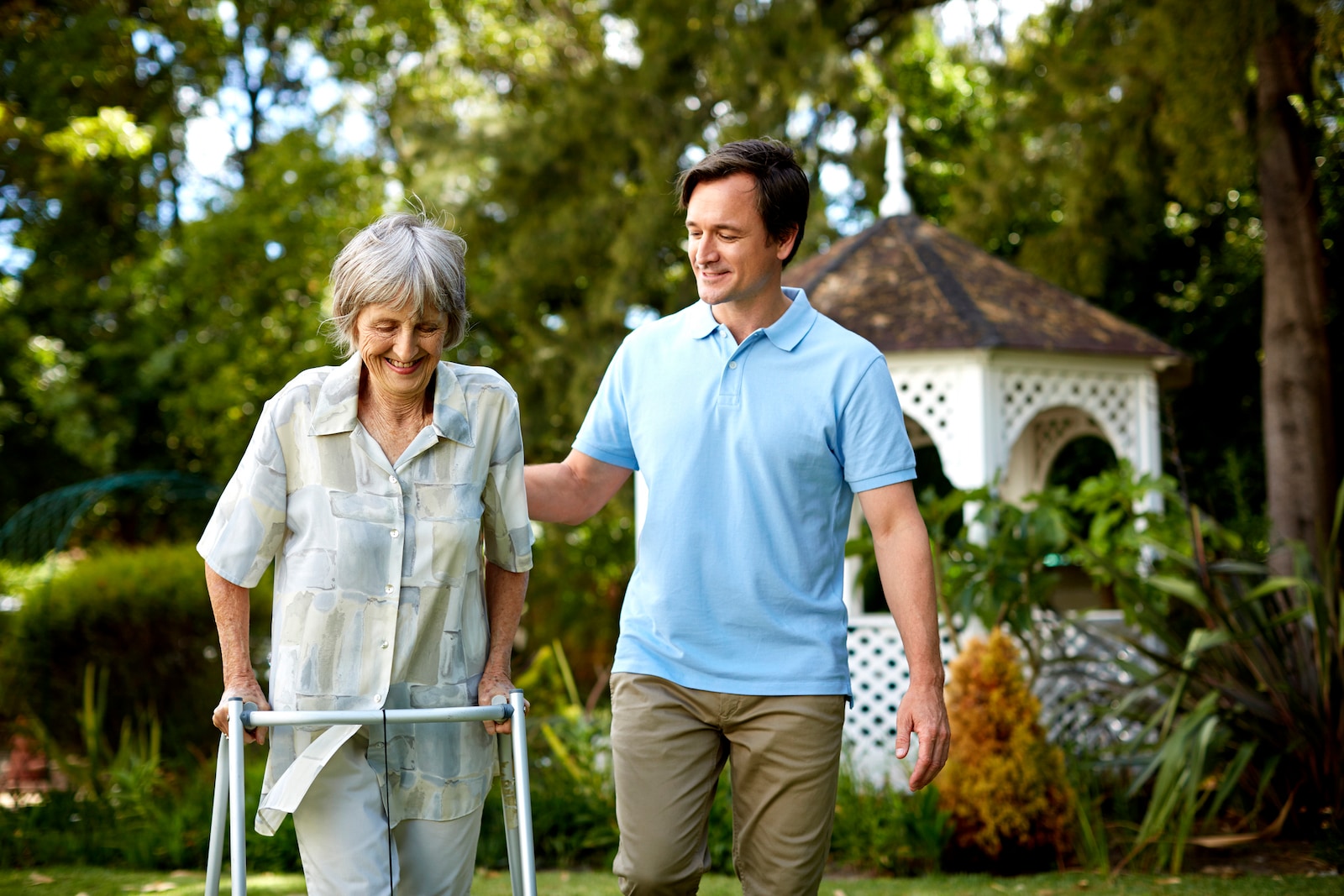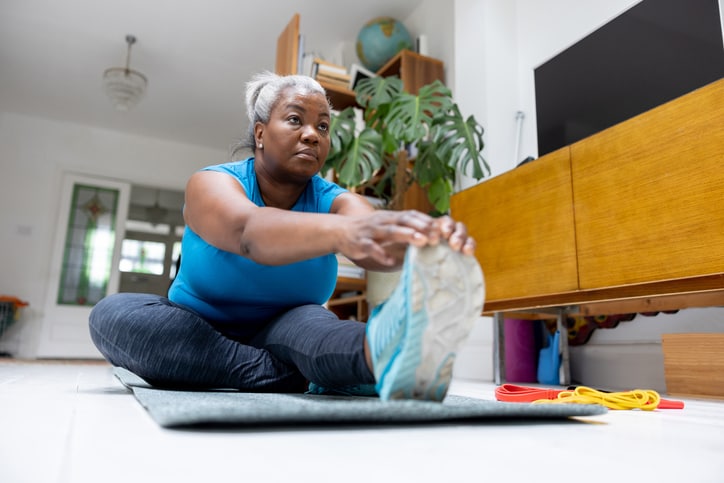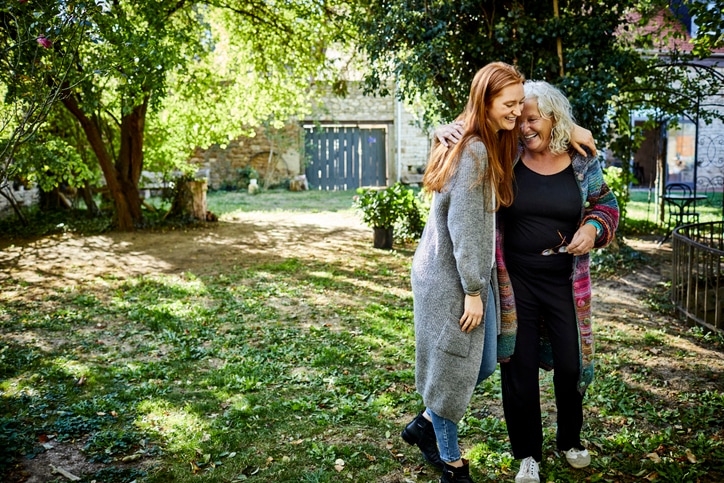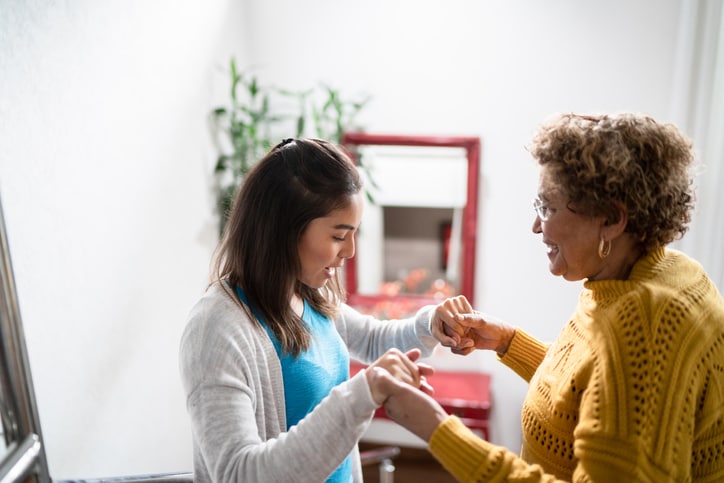With heart disease being the number-one cause of death worldwide, and 80% of those deaths occurring in adults 65 and older, there’s a strong chance you, as a caregiver, will encounter a senior who is — or will be — battling the illness.
“Over the years, I would estimate 75% of the elders I have worked with have had various heart health issues,” notes Amy Cameron O’Rourke, a dedicated care manager and author of “The Fragile Years.” She adds that “a very high percentage” of her clients had high blood pressure, which is a risk factor for heart issues.
Tina M. Baxter, a gerontological nurse practitioner, has seen a similar trend. “I would say that around 60 to 70% of my clients have hypertension, cardiovascular disease, hyperlipidemia, obesity or a combination thereof,” she notes.
But unlike other diseases senior folks can be afflicted with, there is one silver lining when it comes to heart-related conditions: They’re mostly preventable. Cleveland Clinic notes that, when the right lifestyle, diet and exercise changes are implemented, upwards of 90% of heart-related health conditions can be more easily managed or avoided entirely.
And, as O’Rourke adds, because caregivers help manage a senior’s diet, movement and doctor’s visits, they can make an enormous impact in a senior’s life. Here, experts share six top ways for caregivers to look out for their senior loved one or client’s heart health.
1. Encourage mini bouts of movement throughout the day
Although the Physical Activity Guidelines for Americans notes that seniors should engage in at least 150 minutes of moderate-intensity aerobic exercise per week to promote a healthy heart, recent research is finding that the biggest benefits can be reaped from even the (seemingly) smallest, least time-consuming forms of movement.
In one JAMA Open Network study, researchers found that when seniors wore a fitness tracker to observe their daily movement, they were sedentary for seven minutes less each day. And, subsequently, those individuals saw their blood pressure drop by 10 points over a 20-week period.
“Physical activity is critical in maintaining functional health,” O’Rourke says, who adds that means walking, eating and doing daily activities.
Here are some forms of exercise O’Rourke says definitely count:
- Golf
- Playing cards
- Volunteering
- Walking to get the mail
- Circling the block
- Getting up and down from chairs frequently
- Taking an exercise class on YouTube or via Zoom
The bottom line: If it requires even a fraction of movement, it counts. Just encourage it to be frequent!
“Instead of reaching for the salt, can you add some additional seasoning for flavor? Garlic is especially good.”
— TINA M. BAXTER, A GERONTOLOGICAL NURSE PRACTITIONER
2. Skip the salt (and spice things up)
Too much salt is a recipe for potential heart problems, according to a study from the New England Journal of Medicine. Research participants saw an 18% increase in their cardiovascular risk for every additional 1,000 milligrams they consumed (above the 2,300-milligram daily Centers for Disease Control recommendation).
Baxter’s advice? Spice up mealtime. “Cook recipes together,” she suggests. “Instead of reaching for the salt, can you add some additional seasoning for flavor? Garlic is especially good.”
Another top spice, says Baxter, is turmeric. Of course, which spice to add depends on the type of dish being created (and the senior’s taste), so don’t be afraid to experiment. (Bonus point: Cooking counts as daily movement, too!)
3. Don’t categorize foods as “good” or “bad”
But while it’s best to err on the side of moderation when it comes to salt, categorizing foods as “good” and “bad” is ultimately a waste of time, according to the most recent nutrition guidance from the American Heart Association. Rather, as the guidance suggests, a senior’s overall eating habits play the largest role.
O’Rourke adds that moderation is key when it comes to meal timing, too. “Aim for smaller, more frequent meals,” she suggests, adding that it’s best to limit processed food as well.
Your best bet: Allow the person you’re caring for to indulge in their favorite foods, but aim to make the bulk of their diet (say, 80%) a mix of grains, fruits, vegetables and lean proteins, says O’Rourke.
4. Do your best to help them combat stress
Although nutrition and exercise habits are key factors in a person’s heart health, a November 2020 study released from the JAMA Open Network suggests that waning mental health and skyrocketing stress might be the biggest issue of all. The study found that in individuals who had an underlying (but relatively stable) heart condition, significant mental stress compounded the risk for nonfatal heart attacks or death from cardiovascular disease.
Granted, substituting salt for garlic is a much easier and concrete heart healthy step than, say, helping a senior cope with the multitude of stressors that come along with aging (loneliness, isolation, physical inabilities, to name a few). But there are some ways caregivers can help, says O’Rourke.
“Determine the true source of the stress,” explains O’Rourke. “This requires careful listening.” Here’s how to help when it comes to several common triggers:
Money
“Set up a meeting to show them that they won’t run out of money before they die,” O’Rourke says, noting that many seniors she works with have this (often unfounded) fear. And if money is a real cause for concern, aiding that senior person in finding someone who can help (i.e. speaking with a financial advisor) is paramount.
Potentially having to move into a nursing home
This is another (often unfounded) fear, says O’Rourke, noting that many seniors are worried their loved ones might “suddenly” want nothing to do with them anymore. “Talk them through logically on how this most likely won’t happen,” she says. And, if the senior’s loved ones do intend to move them into a home, calmly and thoroughly explain the steps in order to get to that point so there are no surprises.
Something (seemingly) unimportant to you
“Try not to say, ‘don’t worry about that,’” O’Rourke notes, adding that while some stresses a senior person goes through might not seem like a big deal, if it is to them, it needs to be resolved or discussed. “Take stress and worry seriously!”
5. Prep for a perfect night’s sleep
Poor sleep ups your risk for heart failure, says research from the journal Circulation. “A good night’s rest is foundational for the day, and so are naps,” O’Rourke says. “Consider limiting fluid intake earlier in the evening so elders do not have to get up in the middle of the night [and interrupt sleep].” She also notes that late-night trips to the bathroom are associated with (often) debilitating falls.
Here are a few strategies from O’Rourke she uses to ensure a solid night’s sleep for her clients:
Create support around their preferred sleep needs.
“If it’s sleeping in the recliner in the living room, make that happen.”
Ensure late-night bathroom trips don’t become problematic.
“Place a portable toilet (or urinal) near the bed so they don’t fall on the way to the bathroom,” says O’Rourke. “And limit food and alcohol intake if you can after 7 p.m.”
Keep track of medications.
“Check with the [senior’s] physician to see if any of the medications they are on could disrupt their sleep and if they can be given earlier in the day,” recommends O’Rourke. “We have had some elders on an antidepressant in the evening. When it changed to an a.m. time, their sleep improved.”
6. Stay in constant contact with a senior’s care team
As a caregiver, your role as the primary manager of a senior’s health is hugely important. Work with your senior’s primary care physician for guidance and take advance from their cardiologist, says O’Rourke. Know what medications the person you’re caring for should take as well as the prescribed timing for taking them, what kind of diet they should be on and any other special doctor-recommended notes.
But, as O’Rourke says, part of your job is to be skeptical and advocate for your senior loved one or client, too, as you are likely quite familiar with their health.
Ultimately, with the right medical care, intervention and lifestyle changes, it’s possible to keep your senior’s heart health firing on all cylinders.




